Navigating the world of cheese while trying to lose weight can feel like walking a tightrope. Cheese is often seen as a guilty pleasure, but it doesn’t have to be. In fact, some cheeses can be part of a healthy diet and even support weight loss goals.
Understanding which cheeses offer the best nutritional benefits without packing on the pounds is key.
This guide explores the healthiest cheese options that can help you stay on track with your weight loss journey. Discover how you can enjoy the rich flavors of cheese without compromising your health objectives.

Is Cheese Healthy?
Cheese offers essential nutrients, making it a good choice for a balanced diet. Loaded with calcium, it strengthens bones and teeth.
Rich in protein, cheese supports muscle repair and growth. However, some cheeses contain high levels of saturated fats and sodium. Consuming these in moderation is important to avoid health risks.
Certain varieties present lower fat and sodium content, aligning better with weight loss goals. Mozzarella and cottage cheese, for instance, are lighter options. Regular consumption of such cheeses can aid weight management while providing nutritional benefits.
Top 10 Healthiest Cheeses for Weight Loss
Here are the top 10 healthiest cheeses for weight loss, based on their lower calorie, fat, and higher protein content:
1. Gouda
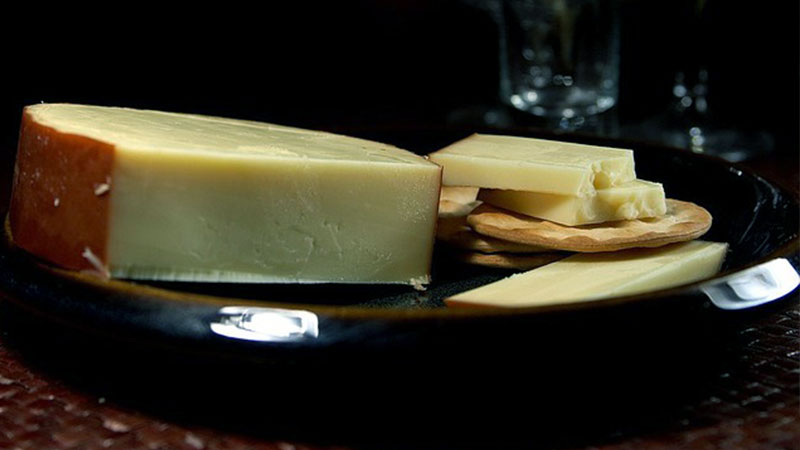
Gouda, a cheese from the Netherlands, is renowned for its mild and creamy flavor and is rich in essential nutrients beneficial for weight loss.
It is a good source of calcium, vital for bone health, and provides around 7 grams of protein per ounce, aiding in muscle repair and growth.
Gouda can be incorporated into a diet in moderation to balance calorie intake, as it is lower in saturated fats compared to many other cheeses, supporting heart health. It also comes in young and aged forms, offering varied taste experiences without compromising dietary goals.
2. Edam

Edam cheese, originating from the Netherlands, is known for its red wax coating and semi-hard texture, making it easy to slice and grate.
It provides around 7 grams of protein per ounce, supporting muscle growth, and its calcium content helps maintain bone health.
With a relatively low fat content, Edam is suitable for those looking to minimize fat intake. Its mild, slightly nutty flavor complements various dishes such as salads and sandwiches without overpowering other ingredients, making it a good option for a balanced diet that supports weight loss.
3. Goat’s Cheese

Goat’s cheese offers a creamy texture and tangy flavor with fewer calories and less fat than many cow’s milk cheeses, containing about 75 calories and 6 grams of fat per ounce.
It provides roughly 5 grams of protein per ounce, supporting muscle repair and growth, and is rich in vitamin A and calcium for bone health and immune function.
Easier to digest for those with lactose intolerance, goat’s cheese can enhance salads, sandwiches, or spreads without compromising weight loss goals.
4. Parmesan

Parmesan cheese stands out for its rich flavor and low-calorie content. This hard, aged cheese provides around 110 calories and 7 grams of fat per ounce, making it a lighter choice compared to other cheese varieties.
With over 10 grams of protein per ounce, Parmesan supports muscle repair and growth. Its high calcium content strengthens bones, enhancing overall health.
Grated Parmesan adds depth to salads and pasta dishes without adding excessive calories. When used in moderation, it doesn’t jeopardize weight loss efforts. Its robust flavor means that a small amount goes a long way, enhancing meals while maintaining a focus on weight management.
5. Paneer
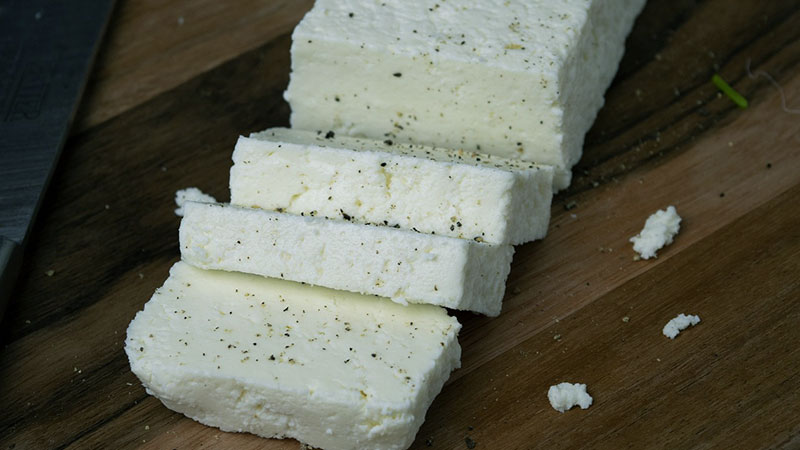
Paneer, a staple in Indian cuisine, ranks high in health benefits. It’s made from curdled milk, separating the whey. Each ounce contains approximately 8 grams of protein, aiding in muscle repair.
The calcium content, around 200 milligrams per ounce, supports bone health. Paneer is lower in fat compared to many other cheeses, with only about 6 grams per ounce. Its mild flavor makes it versatile in various dishes, from salads to main courses.
Vegetarians often choose paneer as a protein source. When consumed in moderation, paneer fits well into a weight loss diet. Its nutritional profile provides essential nutrients while keeping calorie intake controlled.
6. Mozzarella
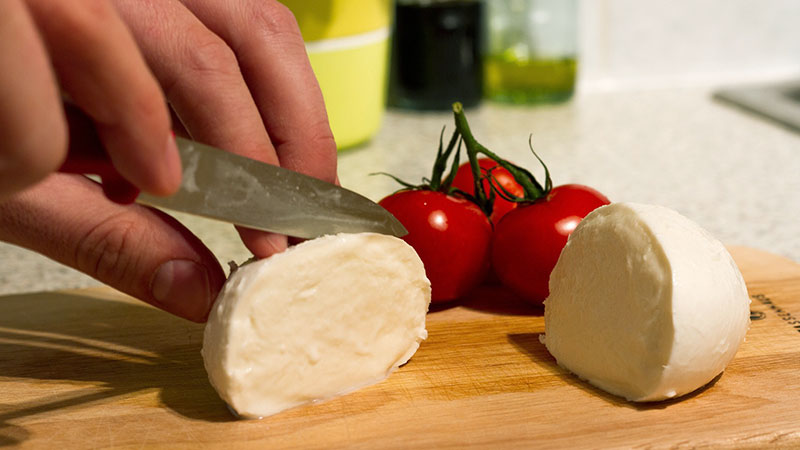
Mozzarella is a healthy choice for weight loss, with only 85 calories and 6 grams of fat per ounce. It provides around 7 grams of protein, aiding muscle repair and growth, and its calcium content strengthens bones.
Its mild flavor pairs well with various dishes, and it contains less sodium than some other cheeses, supporting heart health.
Including mozzarella in moderation helps meet nutritional needs without excessive calorie intake, making it beneficial for a weight loss diet.
7. Ricotta
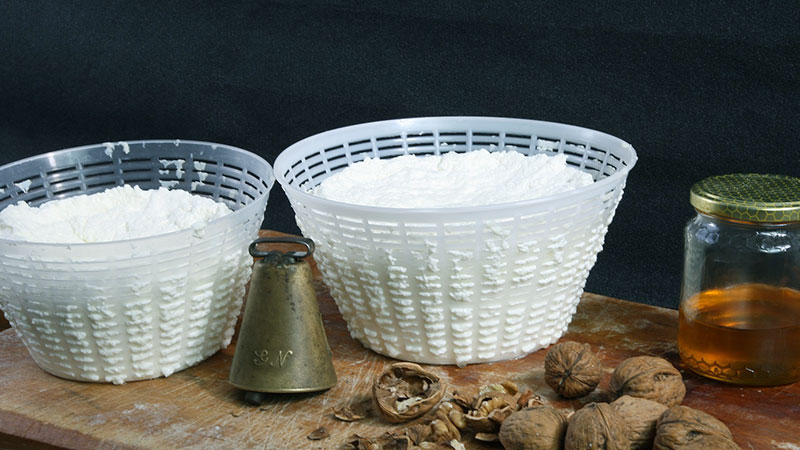
Ricotta is a fresh cheese with a creamy texture that supports weight loss goals. Each ounce contains about 90 calories, 7 grams of protein, and only 6 grams of fat, making it a lower fat option than many other cheeses.
Its mild flavor pairs well with both sweet and savory dishes, offering versatility in meal planning. High in calcium, Ricotta also strengthens bones. Incorporating Ricotta in moderation promotes a balanced diet while aiding in weight loss.
8. Cottage cheese

Cottage cheese is great for weight loss, providing around 90 calories, 1 gram of fat, and 14 grams of protein per half-cup serving.
It’s rich in calcium for bone health and has a mild flavor that pairs well with sweet and savory dishes, making it versatile for meal planning. Its low sodium content contributes to heart health, and its high protein and low-calorie content make it ideal for weight management.
9. Cheddar

Cheddar, with its sharp, robust flavor, provides essential nutrients beneficial for a weight loss diet. Each ounce has about 113 calories and 9 grams of fat, making portion control crucial.
It offers roughly 7 grams of protein per ounce, aiding muscle repair and growth, and its high calcium content strengthens bones.
Versatile in dishes like salads, sandwiches, and casseroles, Cheddar enhances flavor while adding nutritional value but should be consumed in moderation to avoid excessive calorie intake.
10. Feta
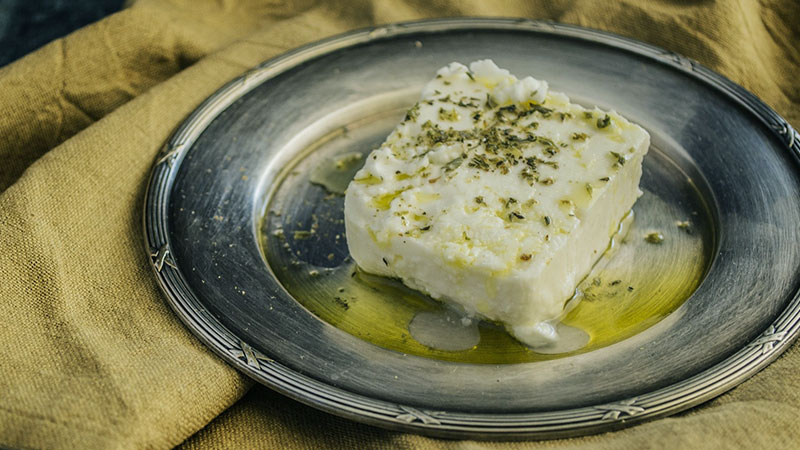
Feta cheese offers a tangy flavor that complements various dishes, containing around 75 calories, 6 grams of fat, and 4 grams of protein per ounce.
Made from sheep’s milk or a mix of sheep’s and goat’s milk, it has a distinct texture and taste. Its high calcium content strengthens bones, making it beneficial for weight loss diets.
Lower in both fat and calories, Feta can enhance salads, wraps, and baked dishes while maintaining nutritional balance.
Health Benefits of Cheese
Cheese is packed with essential nutrients, offering numerous health benefits. Key areas like bone, dental, muscle, heart, and gut health can be positively impacted, assisting in weight management and nutrient absorption.
Bone Health
Cheese provides essential nutrients like calcium and vitamin D, which are critical for strong bones. Gouda, for example, contains around 7 grams of protein per ounce, contributing to bone strength. By including calcium-rich cheeses, bone density improves, reducing fracture risks.
Dental Health
The calcium and casein found in cheese help protect tooth enamel. Cheeses like Edam, with its lower fat content and approximately 7 grams of protein per ounce, contribute to stronger teeth. Cheddar, which offers high calcium content, helps maintain dental health when consumed in moderation.
Muscle Health
Protein in cheese is vital for muscle repair and growth. Parmesan, providing over 10 grams of protein per ounce, supports muscle recovery efficiently. Including protein-rich cheeses like cottage cheese, which has about 90 calories and 1 gram of fat per half-cup, aids in muscle maintenance.
Heart Health
Healthier cheese options, with lower saturated fats, support heart health. Goat’s cheese, easier to digest with about 75 calories per ounce, contains moderate fat levels beneficial for cardiovascular health. Ricotta, at 90 calories and 7 grams of protein per ounce, is another heart-healthy choice.
Gut Health
Certain cheeses benefit gut health through probiotics. Goat’s cheese, easier on digestion, helps those with lactose intolerance. Feta, made from sheep’s milk or a mix with goat’s milk, contains probiotics that promote a healthy gut microbiome.
Weight Management
Low-calorie cheese options aid weight loss goals. Mozzarella, with 85 calories per ounce, fits well in a weight management plan. Cottage cheese, with only 1 gram of fat per half-cup serving and rich in protein, is another excellent option for those aiming to shed pounds.
Nutrient Absorption
Cheese enhances the absorption of fat-soluble vitamins like A, D, E, and K. Paneer, a staple in Indian cuisine, aids in absorbing these essential nutrients. Including a variety of cheeses ensures broader nutrient intake and better overall health.
Tips for Choosing Cheese for Weight Loss
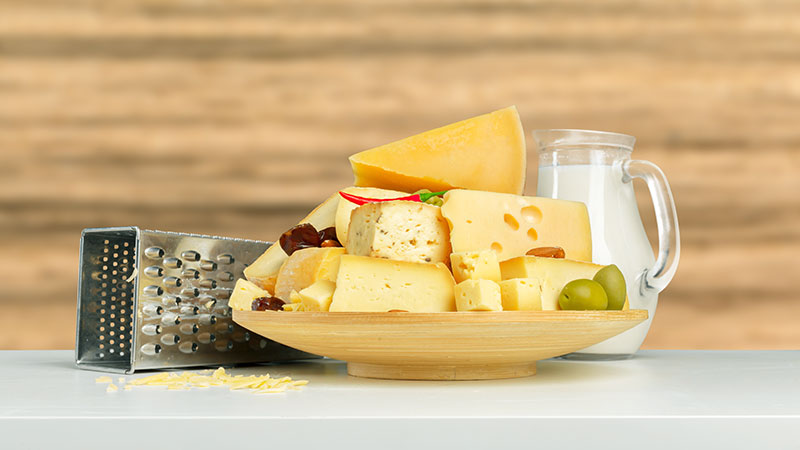
When selecting cheese for weight loss, prioritize varieties that are lower in calories, saturated fat, and sodium while being high in protein and essential nutrients. Here are some tips to guide you in making healthier cheese choices.
Opt for Low Calorie Options
Low-calorie cheeses help keep overall calorie intake in check. Mozzarella, cottage cheese, and feta are excellent examples.
With around 85 calories per ounce, mozzarella provides flavor without excess calories. Cottage cheese offers 90 calories per half-cup serving, while feta contains just 75 calories per ounce and enhances salads and wraps.
Choose Fresh Cheeses
Fresh cheeses generally contain fewer additives and lower fat content. Ricotta and goat’s cheese are noteworthy choices.
Ricotta offers about 90 calories and 7 grams of protein per ounce, supporting weight loss. Goat’s cheese, easier to digest, contains 75 calories and 6 grams of fat per ounce, making it a healthy option.
Use Cheese as a Flavor Enhancer
Utilizing cheese mainly as a flavor enhancer prevents overconsumption. Parmesan, known for its rich flavor, contains over 10 grams of protein per ounce.
A small amount goes a long way in adding taste to dishes. Feta, with its tangy flavor, can enhance meals like salads or wraps without needing a large quantity.
Monitor Portion Sizes
Moderation is crucial when consuming cheese. Gouda and Cheddar cheese, rich in calcium and protein, contain around 7 grams of protein per ounce.
However, their higher calorie and fat content means portion control is essential. Cheddar, for instance, provides 113 calories and 9 grams of fat per ounce.
Incorporate Cheese into Balanced Meals
Incorporating cheese into balanced meals improves nutritional intake without overindulging. Paneer and cottage cheese are excellent sources of protein, with 8 grams and 90 calories per ounce, respectively.
Pair cheese with vegetables, whole grains, and lean proteins to create well-rounded, nutritious meals that support weight loss.
Frequently Asked Questions (FAQs)
Q. Is it OK to eat cheese when losing weight?
People can eat cheese while losing weight, but they should choose healthier options. Low-calorie cheeses, such as mozzarella and cottage cheese, provide essential nutrients without adding too many calories. It’s also important to monitor portion sizes to avoid excessive calorie intake.
Q. Which cheese is good for belly fat?
Mozzarella and cottage cheese are excellent choices for reducing belly fat. With low calories and high protein levels, these cheeses help manage calorie intake while supporting muscle maintenance. Moderate consumption ensures you get the benefits without the extra fat.
Q. Is cheese good for burning belly fat?
Cheese alone does not burn belly fat, but it can support weight loss when part of a balanced diet. High-protein cheeses, like Parmesan and cottage cheese, can promote satiety and help regulate overall calorie intake. Combine cheese with vegetables and lean proteins for the best results.
Q. Can I gain weight by eating cheese?
Excessive cheese consumption can lead to weight gain due to its calorie and fat content. High-fat cheeses, like Cheddar and Gouda, should be eaten in moderation. Choosing lower-fat options and controlling portions can help prevent unwanted weight gain.
Conclusion
Choosing the right cheese can play a significant role in a weight loss journey. While some cheeses are high in saturated fats and calories, many options offer essential nutrients like calcium and protein.
By opting for lighter choices like mozzarella, cottage cheese, and feta, individuals can enjoy the rich flavors of cheese without compromising their health goals.
Incorporating cheese into a balanced diet with vegetables, whole grains, and lean proteins can enhance nutritional intake.
Monitoring portion sizes and using cheese as a flavor enhancer can help prevent overconsumption. With these strategies, it’s possible to savor cheese while effectively supporting weight loss objectives.
